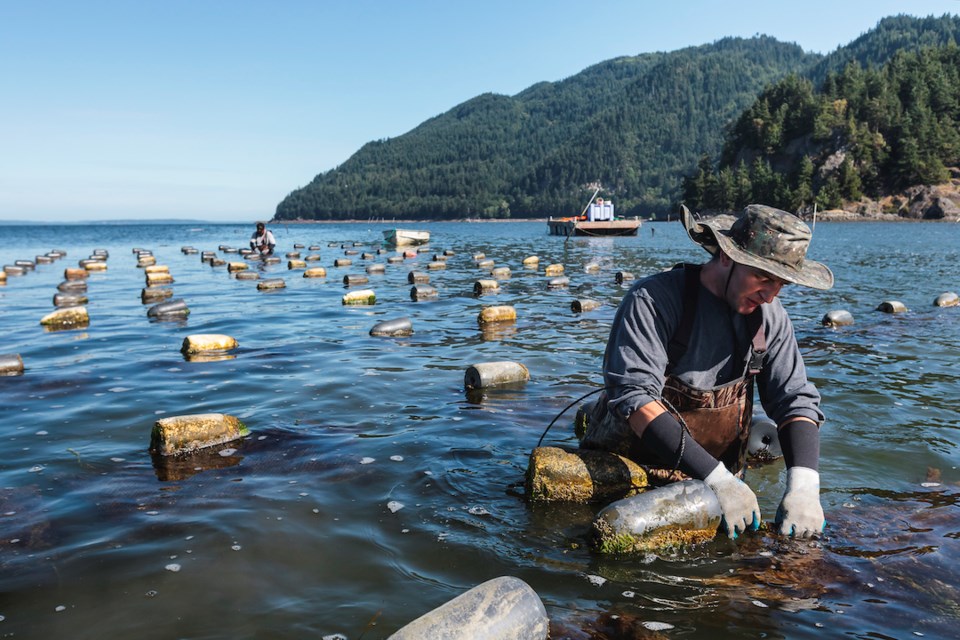Looks like climate change is bad news for fish farms too.
Should the current rate of fossil fuel burning continue, the amount of sustainably farmed seafood will increase by only eight per cent by 2050 and then drop by 16 per cent by 2090, projects a new UBC modelling study.
On the other hand, should humanity mitigate climate change, mariculture is projected to grow about 17 per cent by mid-century and 33 per cent by the end of the century, relative to the 2000s, said
The modelling accounts for factors that include “changing ocean temperatures, suitable mariculture areas in the future and the supply of fishmeal and fish oil,” said the release. “It examined approximately 70 per cent of the world’s mariculture production as of 2015, focusing on Exclusive Economic Zones, where most of the world’s seafood farming occurs.”
Climate change will affect farms differently, based on where they are in the world and the kinds of seafood they produce, according to lead author Dr. Muhammed Oyinlola from the Institute for the Oceans and Fisheries, in the release. In a high-emissions scenario, highly impacted regions of Norway, Myanmar, Bangladesh, the Netherlands and China could see a drop of 40 to 90 per cent in mariculture production.
Regions that produce bivalves (mussels, oysters, clams and the like) are projected to see a smaller impact, while regions that produce finfish, like salmon, will see more effects.
A big consideration for finfish production is not just the changes in farming areas but the food stock. Fishmeal and fish oil made of herring and anchovies are the meal du jour for the farmed sealife. But climate change threatens these stocks. So, the study suggests feeding the animals plant-based foods, like soybeans.
“When a quarter of the fish food was substituted with alternatives, under a low emissions scenario, mariculture production was projected to increase by 25 per cent by 2050 and 31 per cent by 2090,” said the release. “With no change to current emissions, when a quarter of the fish food was substituted with alternatives, mariculture production was projected to increase by 15 per cent by 2050 and four per cent by 2090.
“When half the food was substituted in both climate scenarios, these percentages increased.”
“This study highlights the need to diversify mariculture development from the current focus on fish,” said senior author Dr. William Cheung, IOF professor and director, in the release, adding that farming species that don’t need fish-based feeds can reduce seafood’s exposure to climate hazards.
Read more about the study:




